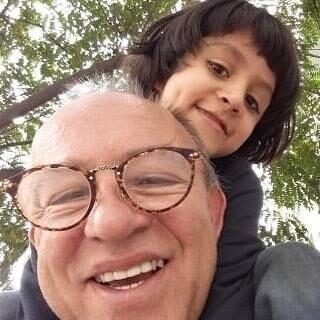- Interview
- Prices/Payment
- Standard Service US$199.00
- VIP/Rush Service US$299.00
- Masters Personal Statement Help
- Dr. Robert Edinger
- Autobiographical
- Cover Letter
- Disadvantaged Status
- Diversity
- Dual Degrees
- Employment
- Fellowship
- Internship
- Letter of Appeal
- Letter of Recommendation
- Scholarship
- Summer School
- Undergraduate
- Mission/Service
- Privacy/Guarantee
drrobertedinger@gmail.com
Free Consults!
Dr. Robert Edinger Admission Writer and Editor
Samples of My Work for the MA Degree in Linguistics
Master’s Degree in Linguistics, Applicant from Sudan
 My own experience of mastering a tongue which is totally unrelated to my native language of Arabic has, in addition to my formal studies and teaching experience, provided an excellent foundation on which to build expertise in linguistics to the highest level. It has also demonstrated to me how much, and how fundamentally, culture affects the ways in which we express ourselves. I marvel at the ways in which our forebears have managed to construct, through trial and error, the means to communicate concisely, precisely and sometimes poetically and have achieved these ends in such very different ways. What subject of study could be more fascinating? Thus, I have my heart set on earning the MA Degree in Linguistics at XXXX University.
My own experience of mastering a tongue which is totally unrelated to my native language of Arabic has, in addition to my formal studies and teaching experience, provided an excellent foundation on which to build expertise in linguistics to the highest level. It has also demonstrated to me how much, and how fundamentally, culture affects the ways in which we express ourselves. I marvel at the ways in which our forebears have managed to construct, through trial and error, the means to communicate concisely, precisely and sometimes poetically and have achieved these ends in such very different ways. What subject of study could be more fascinating? Thus, I have my heart set on earning the MA Degree in Linguistics at XXXX University.
I am an ESL teacher at Bennet College and Greensboro Islamic Academy. My goal is to acquire the highest level of skill and knowledge in socio-linguistics to enable me to maximize my usefulness as a teacher, to become equipped to become an excellent researcher in order to improve the teaching of English particularly to Arabic speaking students and to fulfil my academic and personal potential to its fullest extent. I hope to pass on my passion for the teaching of English to another generation of teachers and to provide expert consultancy services to Ministries of Education, especially in African countries.
Since my undergraduate years, I have been fascinated by theoretical and socio-linguistics and especially in the areas of syntax and second language acquisition. I have worked as an English/Arabic and ESOL teacher at intermediate, secondary and college levels and this has exposed me to various specific problems that I believe to be worthy of research. I am interested in investigating the difficulties specific to Arab learners of English in grammar, speaking, reading and writing to enable improvements in the effectiveness and speed in teaching these skills. I am also interested in establishing which cultural factors impede EFL teaching especially among Sudanese and other African students. It is clear that students from my own country, Sudan, seem to take longer to acquire English language skills than students from other countries and look to assist in the improvement of curriculum design and teaching methods.
It is clear that the traditional ‘chalk and talk’ method of teaching, with little student participation, is not particularly effective in the passing on of language skills and the outcomes seem to confirm this. However, this is still the only teaching technique in use in many countries. I want to be a catalyst in changing the language teaching environment to one in which students are enthused. Rather than regarding language learning as a tiresome but necessary burden, I want students to see it as a fascinating voyage of discovery.
I have 15 years’ experience in teaching English in Africa, the USA and the Middle East. I received my MA in the teaching of English from North Carolina Agriculture & Technical State University and immediately became a licensed ESL teacher. The program provided practical experience of teaching and particularly in selecting and applying specific and appropriate techniques for particular groups of students.
I have taught in very different educational environments, one in which the teacher is ‘king’ and one in which the student is the ‘client/consumer’ and may have to be coaxed to ‘consume’! I have adapted my approach and techniques to be effective in both situations. I employ various engagement and enrichment activities to create and maintain the interest of students and seek to allow them to ‘take ownership’ of their learning schedule as far as possible. I find that teaching English is challenging but highly rewarding. The shared joy of student and teacher when a difficult concept is finally grasped would be hard to match in any other profession.
I admit to a lack of formal research experience but I see a considerable skill overlap between teaching and research. Both call for persistence, determination, creative and original thinking, the ability to formulate clear and challenging but achievable goals and to apply flexibility in reaching them. I am determined to apply all these hard-won characteristics and skills in the program.
I have carefully researched the programs available to help me achieve my goals and have concluded that your own is the ‘best fit’. I am seeking a challenging but supportive academic environment in which I shall be enabled to enhance my skills and knowledge to an expert level and to undertake highly useful research into the teaching of English. I am aware of the excellent work of Dr. Gloria Park and of her research and published work particularly ‘Narratives of East Asian Women Teacher of English, Where Privilege Meets Marginalization’ and would be delighted to be able to work with such an impressive educator and researcher and others like her. I also look forward to working with peers who share my passion in order to create a network of experts for mutual assistance and encouragement in the program and in our careers beyond.
To summarize: I am a well-qualified and highly experienced teacher who has successfully taught English in contrasting educational and cultural environments. I am academically able, ambitious and passionately committed to improving the teaching of English. I am convinced that my background, experience and personal characteristics will enable me to ‘add value’ to the program and I undertake to apply myself with exceptional diligence and enthusiasm to it.
How to Be a Linguist.
Premium Statement Service by Dr. Robert Edinger
With maximum creativity, research, priority attention, and as many revisions as needed!
Dr Robert Edinger with Son David
drrobertedinger@gmail.com
1-812-675-4937
Statements of Excellence for Admission to Graduate School in Linguistics

Search by Discipline, Degree, Ethnicity, or Country of Origin
Why I want to help you get accepted to Graduate School in Linguistics
 I completed my PHD in Religion and Social Ethics at the University of Southern California in 1995 and began studying towards a Master’s Degree in TESOL at the University of Illinois. That September, I found myself quite challenged by my linguistics class where, among other things, we had to invent a new language, complete with grammar, syntax, etc. The following year I was selected to teach for one year at the Universitat of Barcelona in Spain. The next year I began working on the Internet.
I completed my PHD in Religion and Social Ethics at the University of Southern California in 1995 and began studying towards a Master’s Degree in TESOL at the University of Illinois. That September, I found myself quite challenged by my linguistics class where, among other things, we had to invent a new language, complete with grammar, syntax, etc. The following year I was selected to teach for one year at the Universitat of Barcelona in Spain. The next year I began working on the Internet.
My greatest strength in helping you to write an extremely effective statement for admission to advanced study in linguistics is not so much my own understanding of linguistics per se, but rather my understanding and creative capacity to help you to develop and articulate your long term career plans and contribution to society, in other words, what you intend to do with your advanced degree in linguistics once you earn it.
I would be honored to help you gain admission to graduate school in Linguistics by drafting a most eloquent statement on your behalf. In addition to filling out my Online Interview Form, send your resume/CV and/or rough draft to my email:
Free Document Evaluation:
FBI Linguists: What We Do and How to be Successful.
The Heroines of Linguistics
Over the years, there have been some shockingly talented linguists. And many of them are women, because this is a field that´s dominated by women. Here are some women that really inspire us.
Joan Bybee
Joan Bybee is an American linguist and a Distinguished Professor at the University of New Mexico. She served as president of the Linguistic Society of America in 2004, and much of her work concerns grammaticalization, stochastics, modality, phonology and morphology.
This talented linguist has a bachelor's degree from the University of Texas at Austin, a master's degree from San Diego State University and a Ph.D. from the University of California at Los Angeles.
Tsvia Walden
Tsvia Walden is an Israeli psycholinguist. She is a professor at the Ben Gurion University of the Negev. She was a senior lecturer at Beit Berl Academic College and Ben-Gurion University previously.
Walden specializes in social constructionism through language, language and gender, language acquisition, literacy, digital literacy and researches Jewish texts.
She is the creator and presenter of a lecture series about language instruction and language acquisition that was filmed recently.
Walden earned her doctoral degree in Psycholinguistics at Harvard University in 1981, a B.A. in Psychology, as well as a teaching certificate in French, at the Hebrew University in Jerusalem, where she also taught Hebrew as a second language.
Walden is married to Professor Raphael Walden, Vascular Surgeon, deputy director of the Sheba Medical Center and co-Chair of Physicians for Human Rights.
Walden was among the promoters of Whole Language, advocating the use of books rather than textbooks for reading instruction and founded the publication Written Thoughts. She also established the Child Language Center at Beit Berl College in 1984 and the Institute for Whole Language and Computers in 1996.
She was among the creators of a five episode series called London, Corner of Ben Yehuda. She was among the founders of the pluralistic Beit Midrash Kolot (Voices), where she studied and taught Jewish Texts for more than 12 years.
Walden was conferred an honorary doctorate from the Hebrew Union College in 2010. In addition to her professional work, she is involved in promoting active listening and dialogue through social issues like promoting human rights and the Middle East peace process.
Irene Heim
Irene Heim is a linguist and a specialist in semantics. She was a professor at the University of Texas at Austin and UCLA. She later moved to the Massachusetts Institute of Technology in 1989, where she is Professor of Linguistics and former Head of the Linguistics Section of the Department of Linguistics and Philosophy.
She is probably most famous for her dissertation The semantics of definite and indefinite noun phrases. In this work, she argued (developing an insight by the philosopher David Lewis) that indefinite noun phrases like a cat in the sentence If a cat is not in Athens, she is in Rhodes are not quantifiers. She argues they are free variables bound by an existential operator inserted in the sentence by a semantic operation that she called existential closure.
She is also the co-author of one of the most influential textbooks in formal semantics, and is a co-editor of the journal Natural Language Semantics.
Irene Heim was awarded a Senior Fellowship of the Zukunftskolleg at the University of Konstanz in 2010.
Mary Rosamund Haas
Mary Haas passed away in 1996. She was an American linguist who specialized in North American Indian languages, Thai, and historical linguistics.
Haas undertook graduate work on comparative philology at the University of Chicago, where she studied under Edward Sapir. She later followed him to Yale.
She began a long career in linguistic fieldwork, studying many languages during her summer vacations. Over the ten-year period from 1931 to 1941, Haas studied Nitinat, Tunica, Natchez, Creek, Koasati, Choctaw, Alabama, and Hichiti, mostly languages spoken in Southeast USA.
Her first co-authored and published paper, A Visit to the Other World, a Nitinat Text, was published in 1933.
She completed her PhD in linguistics at Yale University in 1935 at age 25. Her dissertation was titled A Grammar of the Tunica Language. Tunica was once spoken in what is now the Louisiana and Mississippi areas of the USA.
In the 1930s, Haas worked with the last fluent speaker of Tunica, Sesostrie Youchigant. She produced extensive texts and vocabularies, and shortly afterwards, conducted fieldwork with Watt Sam and Nancy Raven, the last two native speakers of the Natchez language in Oklahoma.
Haas’ extensive unpublished field notes have constituted the most reliable source of information on this dead language. She conducted extensive fieldwork on the Creek language, too, and was the first modern linguist to collect extensive texts in the language.
Most of her notes on Creek and Natchez remain unpublished. However, they are being used by linguists in the 21st century.
Ofelia Zepeda
Ofelia Zepeda is a Tohono O'odham poet and intellectual. She is a professor of linguistics at the University of Arizona and is well known for her efforts in the preservation of her native language and her promotion of literacy in this language.
She is the former director of the American Indian Studies Program at the University of Arizona and is also known for her work as a consultant and advocate on behalf of a number of American indigenous languages.
Her book, A Papago Grammar, is the standard textbook used to teach Tohono O'odham. She was a student of MIT linguistics professor Ken Hale, who taught her a lot and inspired her greatly.
Zepeda has worked with her tribe to improve literacy in English and Tohono O'odham. In 1983, she developed A Papago Grammar from tapes of Native speakers. No textbook previously existed for the classes she taught.
Her work with the reservation committee for Tohono O'odham language policy yielded an official policy that encourages the speaking of the Native language at all grade levels, and in 1999, she received a MacArthur Fellowship.
She is the Poet Laureate of Tucson, Arizona and she continues to serve as editor for numerous journals and book series.
Will you become an inspired, successful linguist? Are you planning to go into this field, but would love to study further? If so, you know where the master´s experts are! Right here!
Most Recently Edited Statement Samples
- MA Educational Counseling, Multiculturalism
- MS Computer Science, Info Security, Saudi
- Real Estate Master’s, Tibetan, New York City
- Master’s in Real Estate Development, Chinese
- General Practice Dental Residency, GPR, Egyptian
- HRM Human Resources Masters, Chinese Woman
- Real Estate Development, Employment Position
- International Affairs Masters, Diplomacy, Africa
- Masters Communications Management, Taiwanese
- Letter of Appeal, International Dentist Program
- Masters Material Science, Pollution, Chinese
- Masters Food Science, Development, African
- Endeavour Scholarship Australia, Filipina
- MBA, Accounting Background, Saudi Woman
- MSC Clinical Microbiology, London, Turkish
- Master's Degree Occupational Therapy, Pakistani
- MA Global Communication, Marketing, Latina
- MS in Business Analytics, Mgmt., Programming
- Masters, Information Systems, Chinese
- MS Project Management, Oil & Gas, Iranian
- PHD Environmental Sciences, Canada
- OT Masters, African-American, Haitian
- PHD IT, Pathologist Assistant Faculty
- MA Counseling, Alcoholic Father, Suicide Mother
- MA Political Science, European, African Woman


